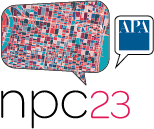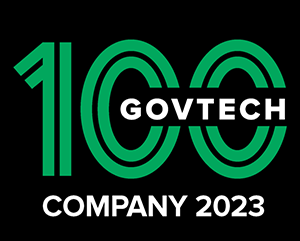APA NPC 2023 Philadelphia Recap
Posted on April 5, 2023
We attended the APA National Planning Conference in Philadelphia this weekend and wanted to take a moment to reflect on an amazing action-packed weekend.
Some extremely interesting planners working both in and out of local government were in attendance. Working mostly with current planning at Camino, I was so impressed with the ways in which attendees were trying to use their planning expertise to make their communities a better place both now and for the future. Conversation topics at the booth had to do with airport planning, research and implementation of planning policy in places like Africa and South America, and, of course, some wild local government political drama.
This year’s theme of Camino’s booth was The Gold Standard in Customer Service in the Permit Center. To drive the theme home, we raffled off 3 pieces of actual gold. We want to congratulate the three winners – Dan Tasman of Ithaca NY, Reema Abi – Akar of Peoria IL, and Kyle Baldwin of Rexburg ID! And thank everyone for entering and stopping by!
Here are a few of my main takeaways from the conference related to Camino and trends in Planning.
1. Planning and Zoning is a Complex Challenge
Now, more than ever, planning and zoning is an extremely complex political, social, and logistical challenge. Over and over we heard stories of communities being politically resistant to the changes planners see as logistically necessary to the sustainability of their communities. Planning and Development leaders stressed to us the challenge of educating their community stakeholders on the why and how behind new zoning regulations. Lots of citizens want to see growth but struggle to understand the vitality of the necessary components that fuel a sustainably growing community such as affordable housing, industrial/commercial development, and new transportation layouts.
2. The Permit Process Remains Difficult to Navigate for Applicants
Despite the introduction of online permitting, the permit process remains extremely difficult to navigate for the average applicant. Out of all the folks we spoke with, the vast majority have switched to an online permit process in some form or another over the last five years. While managing the permit process has become easier for internal staff, the quality of applications, and the general understanding of land development requirements remain pretty poor amongst applicants. Local governments need to be able to educate a wide array of applicants with different competencies, availability, languages, etc… Most staff are fighting a wildfire with a garden hose when considering the technological resources most agencies are currently supporting their staff with.
3. Planners Want to Make an Impact
Planners want to spend their time doing valuable work. This wasn’t just a local government observation, across the entire conference a consistent theme was time. Planners were concerned with getting things done efficiently and spending their time on projects they care about, or in offices that can make a real impact. The folks we talked to in local gov’t really loved Camino’s focus on helping staff deal with more prepared and educated applicants. Fewer distractions during plan reviews and higher quality applications coming in can allow planners to effectively do their work while staying available for their residents in case a particularly unique situation arises.
4. Low Expectations for Community Development Software
The expectations for local government Community Development software are very low. Adopting online permitting is a big step for a lot of agencies, but that isn’t the only thing technology can do for you and your team. There are so many benefits that customer-facing technology can bring to local governments. Planners run a very complex process, and they deserve flexible and intelligent software that can support them rather than hinder them. Consider how easy it is to do business with your team today, and seek ways to make it easier for your customers to navigate their way through the correct approval processes to get their projects started on time.

All in all, we come back from the conference energized by the opportunity Camino has to raise the bar for community development software. So many cities are looking to build amazing communities, and we can’t wait to keep learning how to help facilitate those visions.
A big thank you to the organizers of the event, and looking forward to next year!
–Aidan Cyr, Account Executive

